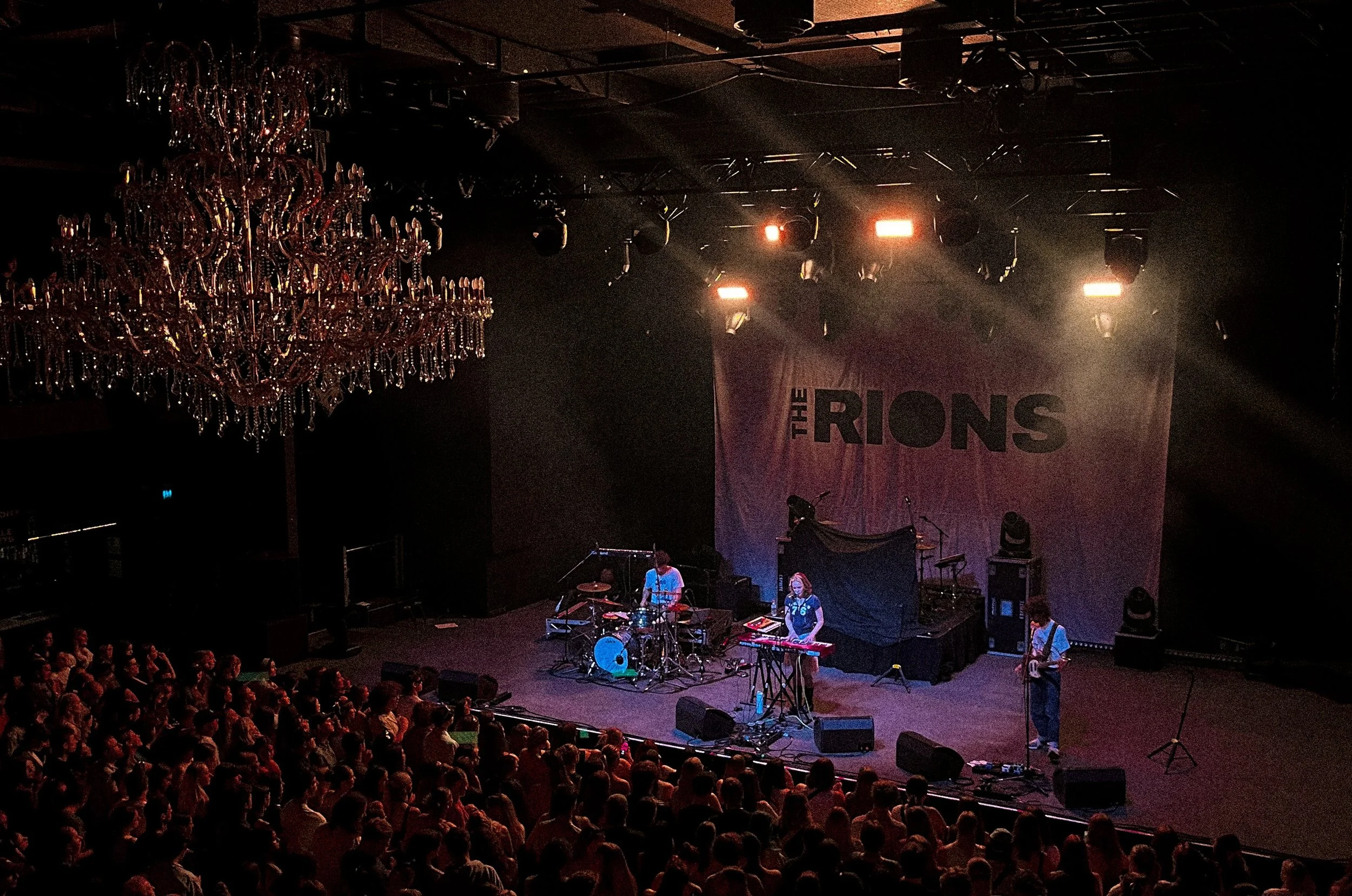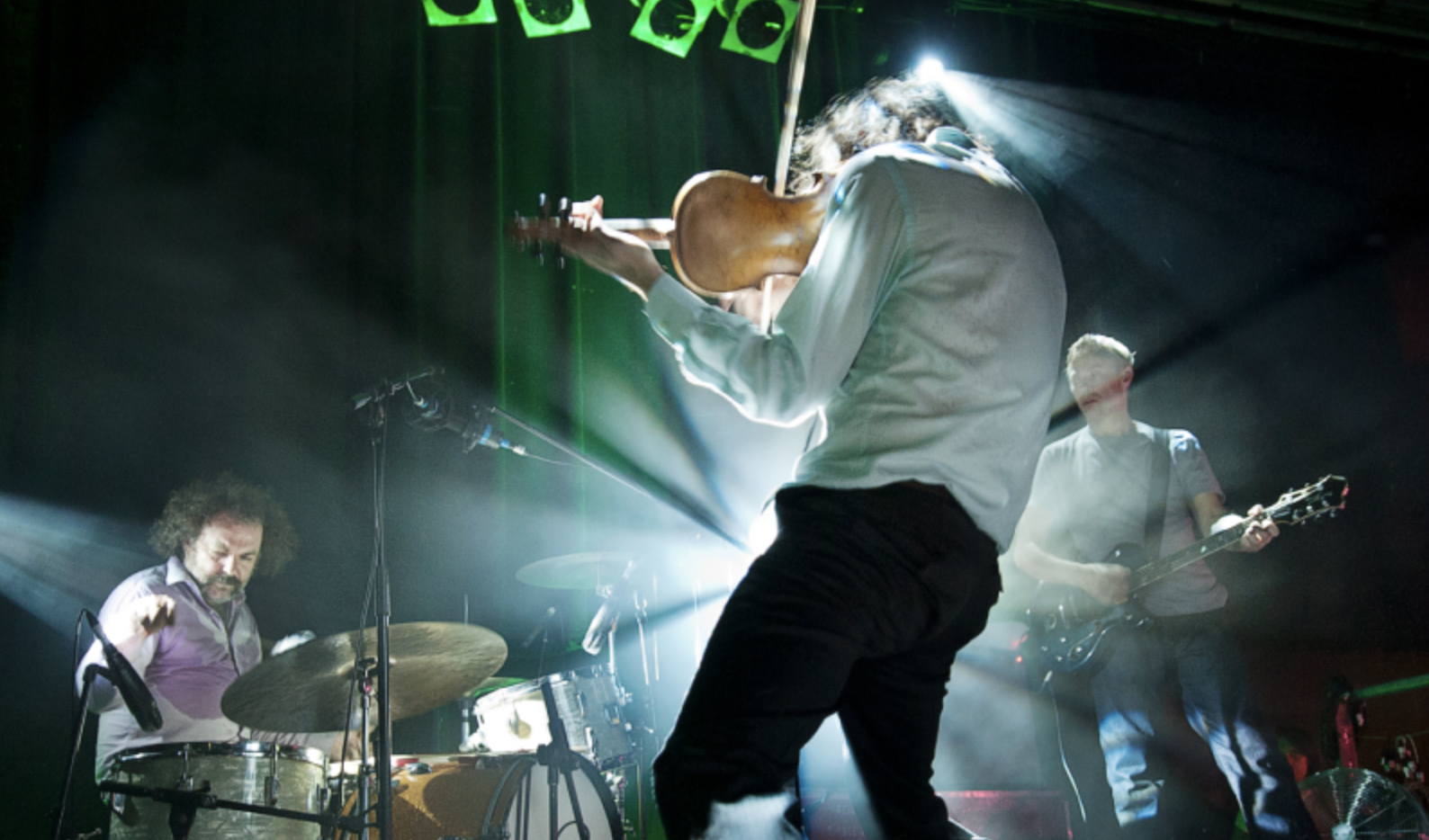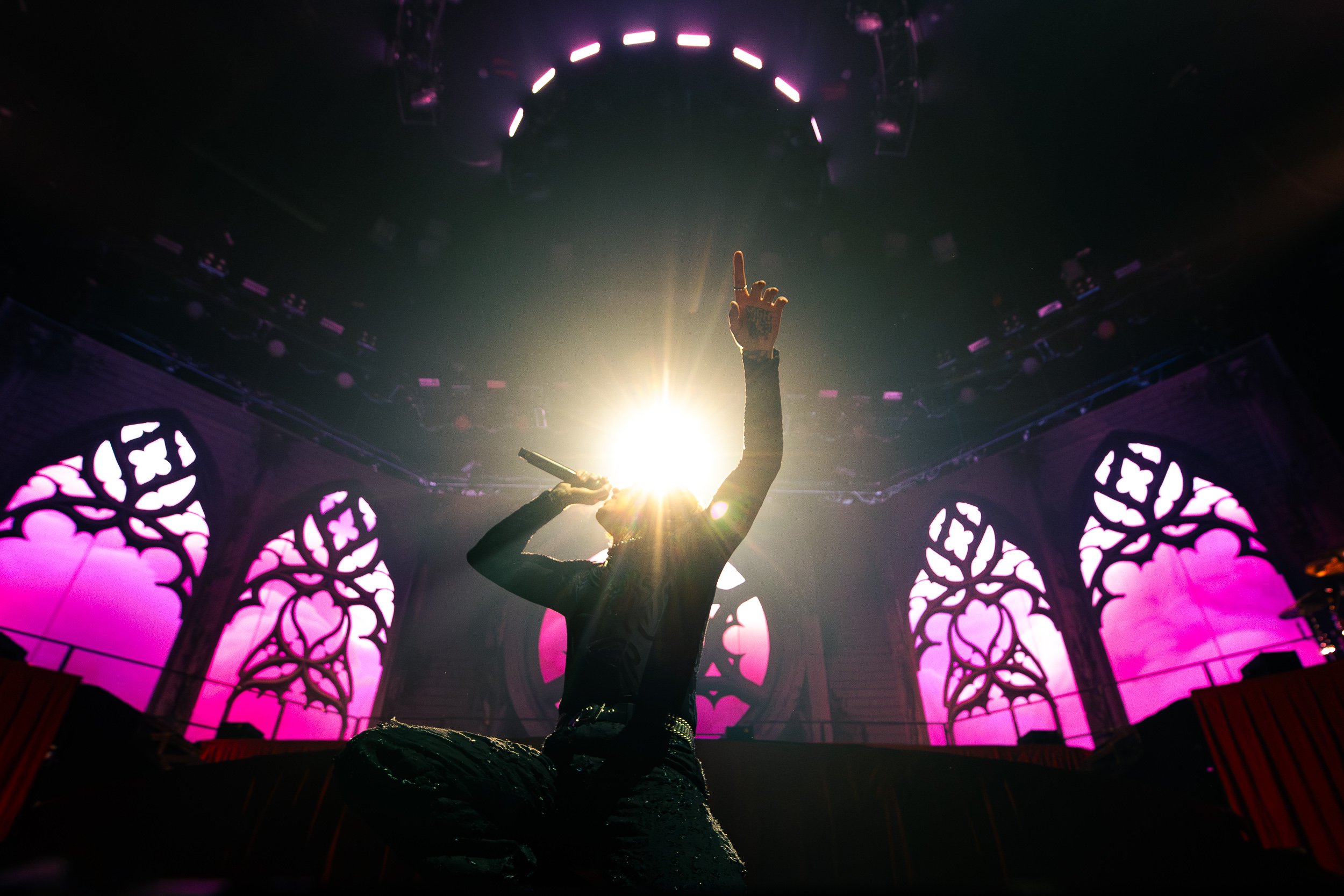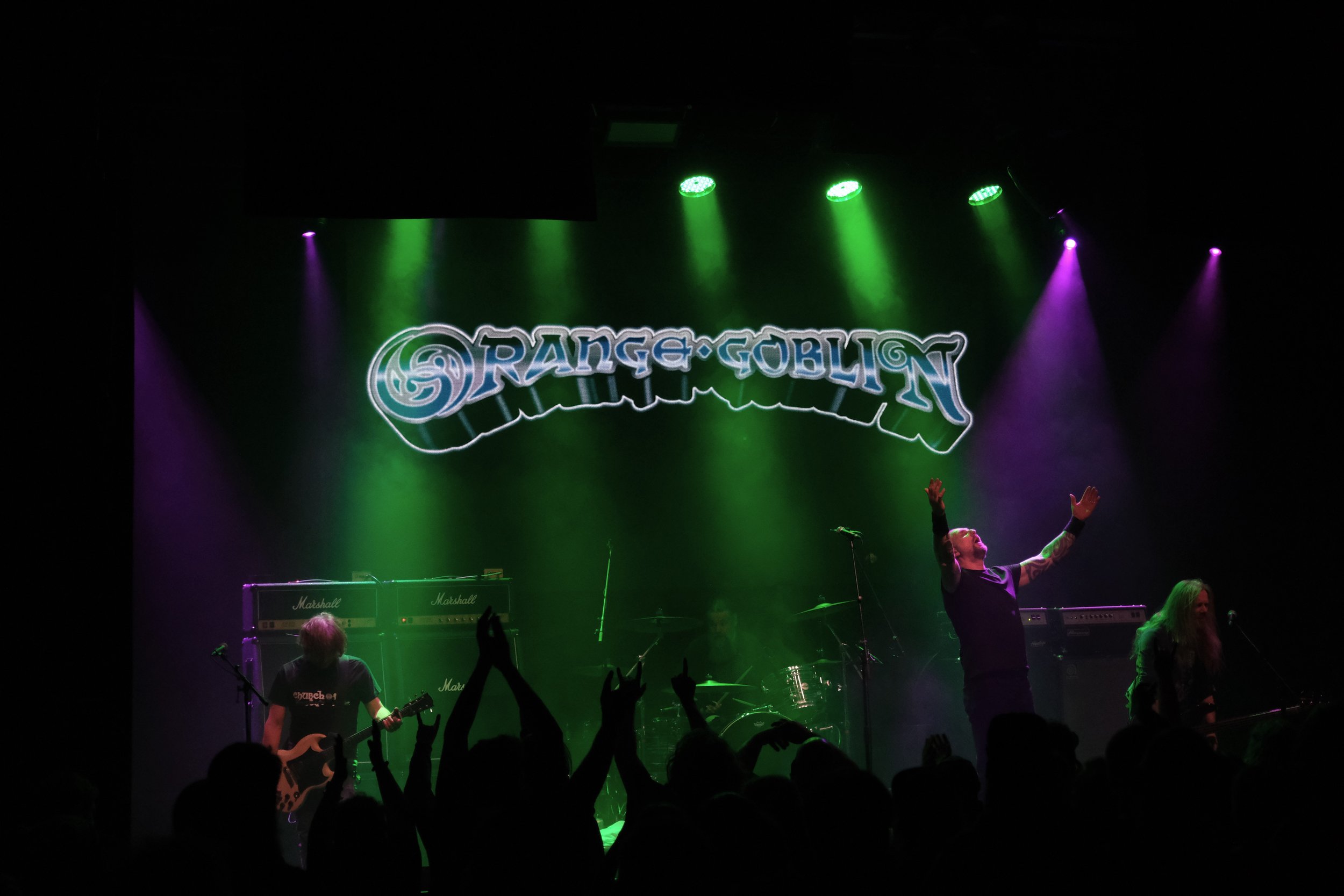REVIEW: WOMADELAIDE @ THE MUSIC WRITER’S LAB
The Music Writer’s Lab is a place for new writers to hone their skills. It’s an initiative of MUSICSA and MUSICNT and supported by the Government of South Australia and Australia Council for the Arts. The Note invited three music lab writers to contribute reviews of our favourite world music event...
SAMPA THE GREAT
No-one would willingly avoid seeing Sampa the Great. As the sun set on Sunday, the band from Zambia slowly made their way to the stage to be greeted by a sea of enthusiastic punters. Then Sampa herself took to
the stage. Looking effortlessly cool, she burst into her 2018 anthem, ‘Energy’. Infectious, high-energy and just downright impressive, the young rapper put on a show beyond her years. Songs like ‘Black Girl Magik’, ‘Let Me Be Great’ and ‘Tilibobo’ invited those who could relate to celebrate with her.
Adding in covers of Gabriel Garzón-Montano’s ‘Aguita’ and The Fugees’ ‘Fu-Gee-La’, she took the set to another level. By the time she reached her last song, ‘Final Form’, you were left with an almost breathless feeling. You knew you were in the presence of royalty, and there was no doubt that this set by Sampa the Great will go down in WOMAD history.
BY KAYLA HAMILTON
SAN SALVADOR
For those who’ve written off acapella music as a choral cringe, think again. San Salvador, a collective from south- west France, combines six voices, two drums, 12 hands and a tambourine in a manner that’s hypnotic, arresting and bound to make you move.
An equal split of male and female voices, San Salvador took turns to provide drone-like bass or high-noted intricacies. Other times, their harmonies cascaded over shifting patterns of powerful percussion.
Each song was a journey. Often, songs built momentum then changed pace. One track even included a disco- like break-down: vocal trills instead of synthesised thrills. Without a conductor in sight, the crowd marveled at their sense of timing and dynamics.
The personal interaction with the crowd was minimal, but it was lovely. Small insights were shared in broken English. We were told San Salvador only write ‘sad songs’, yet those songs felt anything but. Should new choral groups start emerging around Adelaide, I’d understand why...
BY KATE HOLLAND
ADG7
We have K-Pop dance classes here in Adelaide, such is the popularity of this genre. How does Korean act ADG7 align with this?
They delivered a spiritual and theatrical twist, combining the positive energy and blessings of traditional music with upbeat pop. The result was non-stop uplifting.
The powerhouse vocal trio were a delight with cleverly crafted costuming and choreography. The six members played traditional Korean instruments to create an incredibly modern sound, and across the set, each member had their turn to shine. We marveled at the breath control, the powerful percussion and the insane zither skills. We learned to speak some basic Korean, so we could ‘make Korean friends in no time’. Mostly we smiled, and we danced. Even the hand-horns came out.
Some describe ADG7 as ‘shamanic funk’ because they fuse Korean folk music with a swaggering groove. The band says they imagine becoming shamans while performing on stage – they put magic spells on us to “make us happy”.
I say it worked.
BY KATE HOLLAND
RIA HALL
It was the right decision to kick the Monday off with one of the queens of Aotearoa, Ria Hall.
Hall entered the stage with elegance, warming up the crowd with a Maori chant. I was transported back to the times I had spent in New Zealand – the house parties with the music playing, my friend’s families preparing food for us all, the radio loud as we drove through the countryside, from the small towns to Northlands above Auckland...
Hall educated the crowd on Maori language and philosophy. It was a journey of love, culture and an exchange of energy. It was also a set that truly summed up what WOMAD was about: the exposure to new cultures, the revival of old memories that lay dormant, the idea of music being a connector.
BY KAYLA HAMILTON
MINDY MENG WANG
For many years, my start to WOMAD was backstage at media drinks. This year, it began seated comfortably on the luscious long grass at the Zoo Stage.
Chinese musician and multi award-winning composer Mindy Meng Wang was already in place, tuning her guzheng (a traditional Chinese instrument) and quietly checking her sound. As she began in earnest, the crowd was so quiet you could hear the opening of a beer can.
A pioneering musician who redefines and reinvigorates compositions on the guzheng, Mindy loves experimentation. Watching this in action was transfixing. You could almost sense her cogs turning as she decided where to take the music next. A guzheng master, she even incorporated a modern loop. Meanwhile, her vocals ducked and weaved within the mix. She was incredibly generous in her explanations, too. Armed with knowledge, you could hear the story in her compositions.
Mindy’s set was the perfect way to recalibrate in between work and WOMAD. Backstage drinks might be fun, but this was something special...
BY KATE HOLLAND
BECKAH AMAMI
Returning to WOMAD on Sunday, it was like walking into a giant picnic.
At the Moreton Bay Stage, Tanzanian-born singer Beckah Amani joined her band for an hour of pop and soulful R&B vibes. She revealed it was her first time playing at a festival, but once she started singing, those first-time nerves dissolved and were replaced by a woman who was confident in her craft. The strength and range of vocal techniques was a powerful introduction, while her second song ‘Waiting On You’ was an invitation for the crowd to dance.
Amani brought what can be explained as a comfortable vibe – it was like hanging at a friend’s house and lying around listening to music. She provided a blanket of good vibes and optimism.
BY KAYLA HAMILTON
GRACE CUMMINGS
Powered by raw, strong vocals and the musical emotion akin to Jeff Buckley, Melbourne bluesy rock/folk singer Grace Cummings was exactly what I needed to hear. The musician’s voice has the brutal edge to get me through the night.
Cummings challenges the boundaries of composition. In the middle of the set, she incorporated the form of Beethoven’s ‘Moonlight Sonata’ into her music merging classical and modern music to create an intriguing genre of rock. Supported by a soft grunge guitar, powerful bass, and thunderous drums, Cummings unapologetically put her own spin on the sounds of classic rock. Her song ‘Storm Queen’ stood out. The acoustic guitar, the severe vocals, the simple yet moving lyrics – everything about this song resonated with feelings of desperation. The lyric, “It could be a creation of my own so I don’t feel so alone, I just can’t feel alone,” is heartbreakingly brilliant, showcasing the musician’s lyrical delivery.
BY CHELSEA MCLEAN
By the time Melbourne singer Grace Cummings and her band hit the Zoo Stage on Saturday evening, the festival’s gentle buzz had become electric. With the voice of an ’avenging angel’ (shout-out to Zoo Stage MC Phil Gough for that description), the rock ‘n’ roll swagger of Cummings was undeniable. Saddled with a Gibson Flying V in all black, ponytail slicked back and a sly grin across her face, her charisma was off-the-charts.
Transitioning into her song, ‘Common Man’, she had the crowd eating out of the palm of her hand. As impressive
as Cummings’ releases are, there’s no doubt her music is made for a live environment. Her set flew by, but the song ‘Storm Queen’ was where it started to peak. If she was a force before, this song elevated her to Goddess status. Finishing off with ‘Heaven’, the audience erupted and demanded more. If only WOMAD was a place for encores...
BY KAYLA HAMILTON
AURORA
Fascinated by Norwegian singer/songwriter AURORA and her penchant for healing others through music, I couldn’t avoid her set. She didn’t disappoint.
The crowd was standing, and the sun didn’t stream, it scorched. With her four-piece band in place, AURORA appeared, elfin and otherworldly in a long white corset dress with yellow flourishes. True to form, she noted the sun and declared, “I am prepared to become bacon for you!”
Her set, full of radio hits, treated us to both her influences and her signature style: lush Nordic harmonies that
sat high atop the melodic line; moments of cinematic grandeur; Bjork-style growls and vocal dexterity that seem at odds with the fairy-like voice she speaks with.
If I could bottle her energy I would. Partway through ‘Exist for Love’ – delicately executed with nothing but guitar and three-way harmonies – she had a coughing fit and giggled, suggesting she might have swallowed a fly. ‘A Dangerous Thing’ felt like a group hug, enveloping us in beautiful harmonies. And when she launched into ‘Runaway’ the young man behind me belted every line.
We left feeling seen, heard and inspired.
BY KATE HOLLAND
TARAF DE CALIU
Vocalist Ionut Gulună of the six-piece Romanian ensemble Taraf de Caliu announced that, “Music finds its way”.
This perfectly captured my experience at WOMADelaide. Guided by the vigorous violinist Georghe ‘Caliu’ Anghel, the ensemble captured and produced the feeling of utter joy.
The chunky double bass, executed by Lulian Vlad, complemented the reedy accordion-playing of Marin Manole and the soft supporting violin of Robert Gheorghe. Organically, many members of the crowd took their shoes off and danced spontaneously on the grass. The cimbalom, a stringed instrument played like a xylophone, played by Cristinel Turturică, added a soulful quality to the arrangement, drawing me in.
Taraf de Caliu quenched my thirst for unique and refreshing music. The fast tempos and good-feel energy of the set gave the observers a need to dance. As the last generation of musicians from the village of Cleiani, the ensemble carries their sound with great pride.
BY CHELSEA MCLEAN
BAB L’BLUZ
On Saturday afternoon, it was a strong crowd that gathered in the sun to see four-piece Moroccan psychedelic rock band, Bab L’ Bluz.
This is a band with a range of genres and influences. They use traditional instruments at different tunings to emulate bass and guitar. And they create their own sounds – dragging a bow across their strings, for example, to create a raw, raucous and angry effect.
Vocalist Yousra Mansour sings in the Moroccan Arabic dialect of Darija. Fronting the stage in an outfit equal parts Wonder Woman, Xena and Ancient Goddess, she was commanding from the get-go.
A series of percussive instruments (including the curious looking hand cymbals known as qraqebs) interlocked with complex rhythms. At times they were so chaotic they felt close to being out of control.
Collectively beaming, it was clear Bab L’ Bluz were relishing their first time in Australia. We fed off their energy, swayed to their grooves, joined in the call-and- response, and cheered when they called for basic human rights – especially for women.
As the final song drew to a close, Mansour’s head spun in a furious windmill. They invited people to their Monday show, and I don’t doubt they had takers.
MEUTE
The attendees for Monday were rightfully curious when a red-hot, 11-piece German techno marching band by the name of MEUTE stormed the central parklands. The band detaches techno music from the DJ desk with driving, deep house sounds.
Tightly surrounded by dedicated listeners, the band played a mix of arrangements. The saxophone, wrapped with the colours of pride, charmed the crowd as the band played ‘You and Me’, a soul-dropping, hypnotic techno rework – with no mixers required! The snare drummer, whose notable joy is being able to smack his sticks against the kit, was radiant and infectious. MEUTE’s ecstatic parkland rave summed up the quirkiness, joy, and connection that over 700 artists brought to the stage through the four-day course.
BY CHELSEA MCLEAN





































